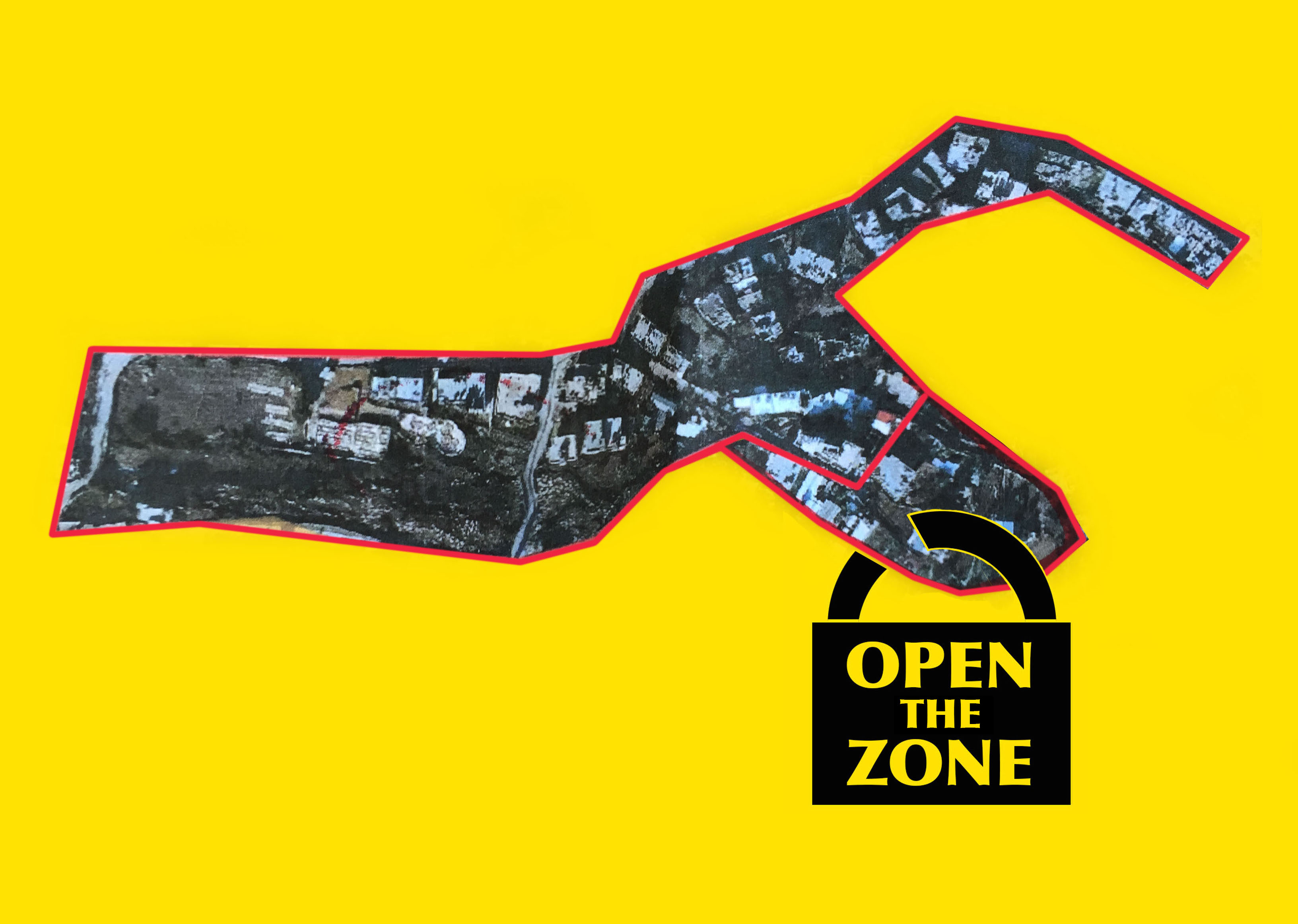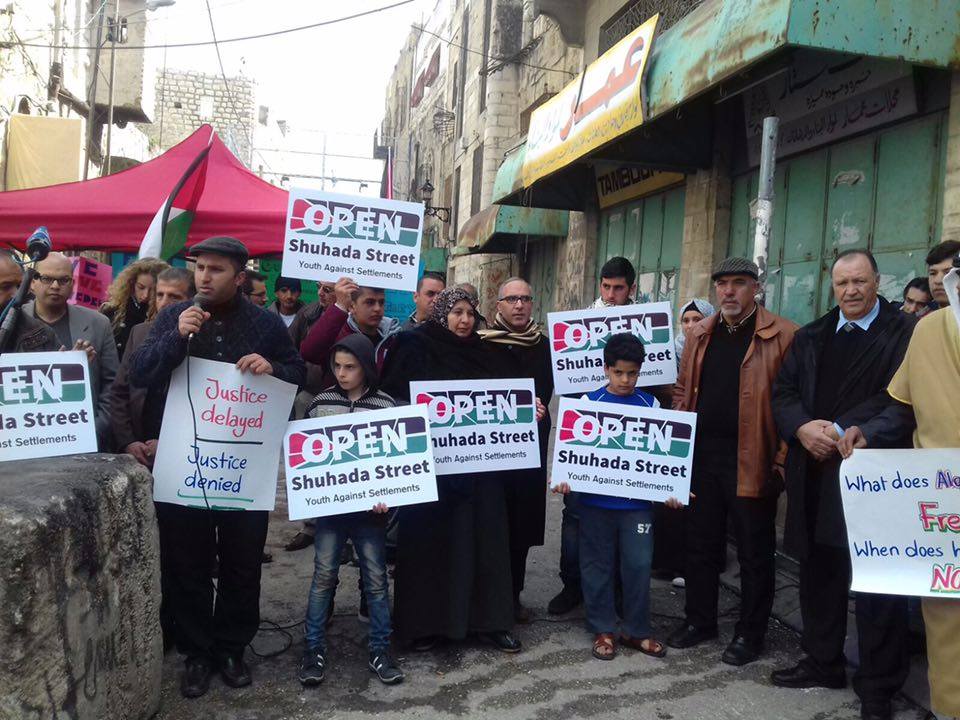Tag: Closed military zone
-
Open The Zone: Palestinians are people – not numbers
3rd May 2016 | Open The Zone Campaign: International Solidarity Movement & Youth Against Settlements | Hebron, occupied Palestine *******UPDATE 20th May 2016******* The closed military zone order has officially been ‘lifted’ – many restrictions and discrimination remain. ******* 3rd May is number 186 of the closed military zone in Tel Rumeida and Shuhada Street.…
-
Israeli forces return to dehumanizing number system in wake of Hebron killings
26th March 2016 | International Solidarity Movement, al-Khalil team | Hebron, West Bank, occupied Palestine After completely closing Shuhada checkpoint to Palestinians in occupied al-Khalil (Hebron) on Thursday, 24th March 2016, Israeli forces have now returned to the practice of ‘numbering’ Palestinian residents in order to restrict access to the adjacent neighborhoods. Soldiers are now…
-
Youth Against Settlements holds press conference in front of Shuhada Street checkpoint to announce 2016 Open Shuhada Street campaign
20th February 2016 | Youth Against Settlements | Hebron, occupied Palestine Youth Against Settlements held a press conference in front of the Shuhada Street checkpoint to announce the beginning of the Open Shuhada Street Campaign. Over a hundred people attended. Palestinian TV, AL-Quds TV, and other local and international media organizations were present. Youth Against…



